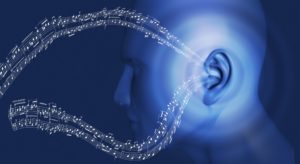
We are delighted to announce that we have just published results of the first two Hearing Aids for Music project studies in the International Journal of Audiology. The article is open access so you can read and download freely from anywhere in the world!
Article link: here
The first study explored hearing aid users’ experiences of music listening using a short survey distributed in clinic waiting rooms. The survey asked patients whether they had experienced any problems with music listening, whether they felt this affected their quality of life, whether they had discussed music with their audiologist and if so, whether this had improved their experience of music.
The second study explored audiologists’ perspectives on listening to music with hearing aids using an online survey. The survey asked audiologists to reflect on their training and background, their experiences of discussing music listening issues, their experiences of optimising hearing aids for music listening, and their perceived confidence in their ability to do so.
Results showed that around two-thirds of hearing aid users experience some issue with music listening, and commonly reported problems included pitch perception difficulties, listening in live contexts, distortion, and difficulties hearing lyrics in songs. Some hearing aid users reported that they had stopped participating in musical activities, whether listening or performing, as a result of difficulties experienced. Relatively few hearing aid users had discussed music listening in clinic, and for those who had, they reported that their audiologist was very helpful in trying to arrive at solutions, but that there was mixed results in terms of improvements in music listening experiences.
To help improve music listening experiences, audiologists reported using a range of strategies, the most commonly cited being removing adaptive functionality (e.g. feedback cancellation, noise reduction), alterations to compression, changes to gain, and taking individual musical needs (e.g. contexts, instruments) into account, though it was not possible from the study design to tell whether these were having a beneficial effect. Most audiologists were not trained in fitting hearing aids for music, though around a third had received some training, mostly at a conference or continuing professional development event. Those with some training were more likely to report confidence in providing advice, confidence in programming hearing aids for music, and programming hearing aids for music for a greater number of patients.
Music listening plays a key role in people’s health and wellbeing as they go about their everyday lives, and that includes people with different levels of deafness. We argue in our paper that empirical research into audiologists’ fitting strategies, and their relationship to beneficial outcomes for hearing aid users, is needed in order to develop evidence-based, validated guidelines to support audiologists’ training.
Drs. Alinka Greasley, Harriet Crook, Robert Fulford
You can contact us on: musicandhearingaids@leeds.ac.uk